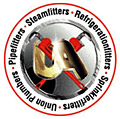| Value Engineering |
|
|
The catchall term “value engineering” describes a studied approach to reducing building costs without compromising quality.This often entails comparing a range of construction methods and materials to determine the most cost-effective means of obtaining a desired structural, aesthetic, or durability standard. But when it comes to insulation, the analysis needs to work in the opposite direction. The process is almost never done with the long-term ramifications of building operation in mind. Because in many situations, real "value engineering" could mean increasing the insulation thickness to offer the owner reduced cost to operate a building, along with a reduced carbon footprint and decreased greenhouse gas emissions. The problem with value engineering mechanical insulation is that the cost to operate the building will increase as mechanical insulation is eliminated or reduced. When mechanical insulation is reduced, the equipment within a facility works harder, thus increasing operating costs and decreasing the life of the equipment. Removing mechanical insulation from a new construction project may cost the owner many thousands, if not millions, of dollars over the life of the building. By not investing in insulation up front, an owner may end up paying more. Usually, insulation is thought of as an added expense. Instead, it should be viewed as an investment, as ROI for properly installed mechanical insulation is dramatic, often times accomplished in as little as a year. |
|
| |






